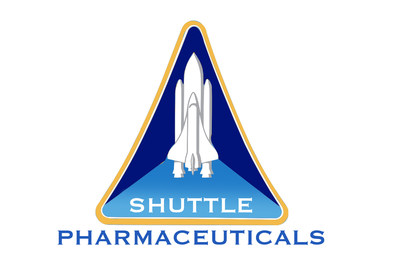Shuttle Pharmaceuticals Manuscript Published in Cancer Research Communications
Shuttle Pharmaceuticals Holdings (Nasdaq: SHPH) announced the publication of a manuscript that discusses immune responses in cancer patients post-radiation therapy. The study, authored by Dr. Amrita K Cheema, reveals how radiation therapy induces innate immune responses in patients with prostate cancer. Key findings include an increase in DNA Damage Response (DDR) shortly after treatment, and sustained immune signaling for up to three months. The research may inform the development of biomarkers and therapeutic strategies for better cancer treatment outcomes. The publication is available in Clinical Cancer Research.
- Study provides insights into immune responses supporting potential future treatments.
- Findings could lead to the development of biomarkers of radiation response.
- None.
Insights
Analyzing...
ROCKVILLE, Md., Jan. 10, 2023 /PRNewswire/ -- Shuttle Pharmaceuticals Holdings, Inc. (Nasdaq: SHPH), a discovery and development stage specialty pharmaceutical company focused on improving the outcomes of cancer patients treated with radiation therapy (RT), today announced the publication of a manuscript discussing immune responses taking place in patients after radiation therapy for cancer. The manuscript, titled, "Radiation therapy induces innate immune responses in patients treated for prostate cancers," by Dr. Amrita K Cheema, was published in Clinical Cancer Research, a journal affiliated with the American Association for Cancer Research (AACR), the premier international cancer research society.
"The report provides insight into the immune response taking place in patients after radiation therapy for cancer. These data inform potential development of biomarkers of radiation response and therapeutic strategies for sequencing radiation and immune therapy modalities for cancer treatment," commented Anatoly Dritschilo, M.D., CEO of Shuttle Pharmaceuticals and a co-author of the report.
Radiation therapy (RT) is a curative therapeutic modality used to treat cancers as a single agent or in combination with surgery and chemotherapy. To understand systemic clinical responses after radiation exposure, proteomic and metabolomic analyses were performed on plasma obtained from cancer patients at intervals after prostate radiation therapy.
DNA Damage Response (DDR) increased within the first hour after treatment and returned to baseline by one month. Robust immune signaling also increased within one hour of treatment but persisted for up to three months thereafter.
The data support innate immune activation as a critical clinical response of patients receiving radiation therapy for prostate cancer, potentially informing multidisciplinary therapeutic strategies for cancer treatment.
The study was supported by NIH SBIR Contracts #HHSN261201600027C and #75N81018C00031 to Shuttle Pharmaceuticals, Inc. which were subcontracted from Shuttle Pharmaceuticals, Inc. to Georgetown University.
A copy of the publication is available at: https://shuttlepharma.com/wp-content/uploads/2023/01/ccr-22-2340.pdf
The journal Clinical Cancer Research publishes articles that focus on innovative clinical and translational research bridging the laboratory and the clinic. Topics include targeted therapies; mechanisms of drug sensitivity and resistance; pharmacogenetics and pharmacogenomics; personalized medicine; immunotherapy; gene therapy; diagnostic biomarkers; innovative imaging, and clinical genetics.
Founded in 2012 by faculty members of the Georgetown University Medical Center, Shuttle Pharmaceuticals is a discovery and development stage specialty pharmaceutical company focused on improving the outcomes for cancer patients treated with radiation therapy (RT). Our mission is to improve the lives of cancer patients by developing therapies that are designed to maximize the effectiveness of RT while limiting the side effects of radiation in cancer treatment. Although RT is a proven modality for treating cancers, by developing radiation sensitizers, we aim to increase cancer cure rates, prolong patient survival and improve quality of life when used as a primary treatment or in combination with surgery, chemotherapy and immunotherapy. For more information, please visit our website at www.shuttlepharma.com.
Statements in this press release about future expectations, plans and prospects, as well as any other statements regarding matters that are not historical facts, may constitute "forward-looking statements." These statements include, but are not limited to, statements concerning the development of our company. The words "anticipate," "believe," "continue," "could," "estimate," "expect," "intend," "may," "plan," "potential," "predict," "project," "should," "target," "will," "would" and similar expressions are intended to identify forward-looking statements, although not all forward-looking statements contain these identifying words. Actual results may differ materially from those indicated by such forward-looking statements as a result of various important factors, including factors discussed in the "Risk Factors" section of Shuttle Pharma's IPO prospectus filed with the SEC on August 31, 2022, and any risk factors set forth in the Company's Quarterly Report on Form 10-Q filed with the SEC on November 14, 2022, or any other SEC filings. Any forward-looking statements contained in this press release speak only as of the date hereof and, except as required by federal securities laws, Shuttle Pharmaceuticals specifically disclaims any obligation to update any forward-looking statement, whether as a result of new information, future events or otherwise.
Shuttle Pharmaceuticals
Anatoly Dritschilo, M.D., CEO
240-403-4212
info@shuttlepharma.com
Investor Contacts
Lytham Partners, LLC
Robert Blum
602-889-9700
shph@lythampartners.com
![]() View original content to download multimedia:https://www.prnewswire.com/news-releases/shuttle-pharmaceuticals-manuscript-published-in-cancer-research-communications-301717383.html
View original content to download multimedia:https://www.prnewswire.com/news-releases/shuttle-pharmaceuticals-manuscript-published-in-cancer-research-communications-301717383.html
SOURCE Shuttle Pharmaceuticals Holdings, Inc.








